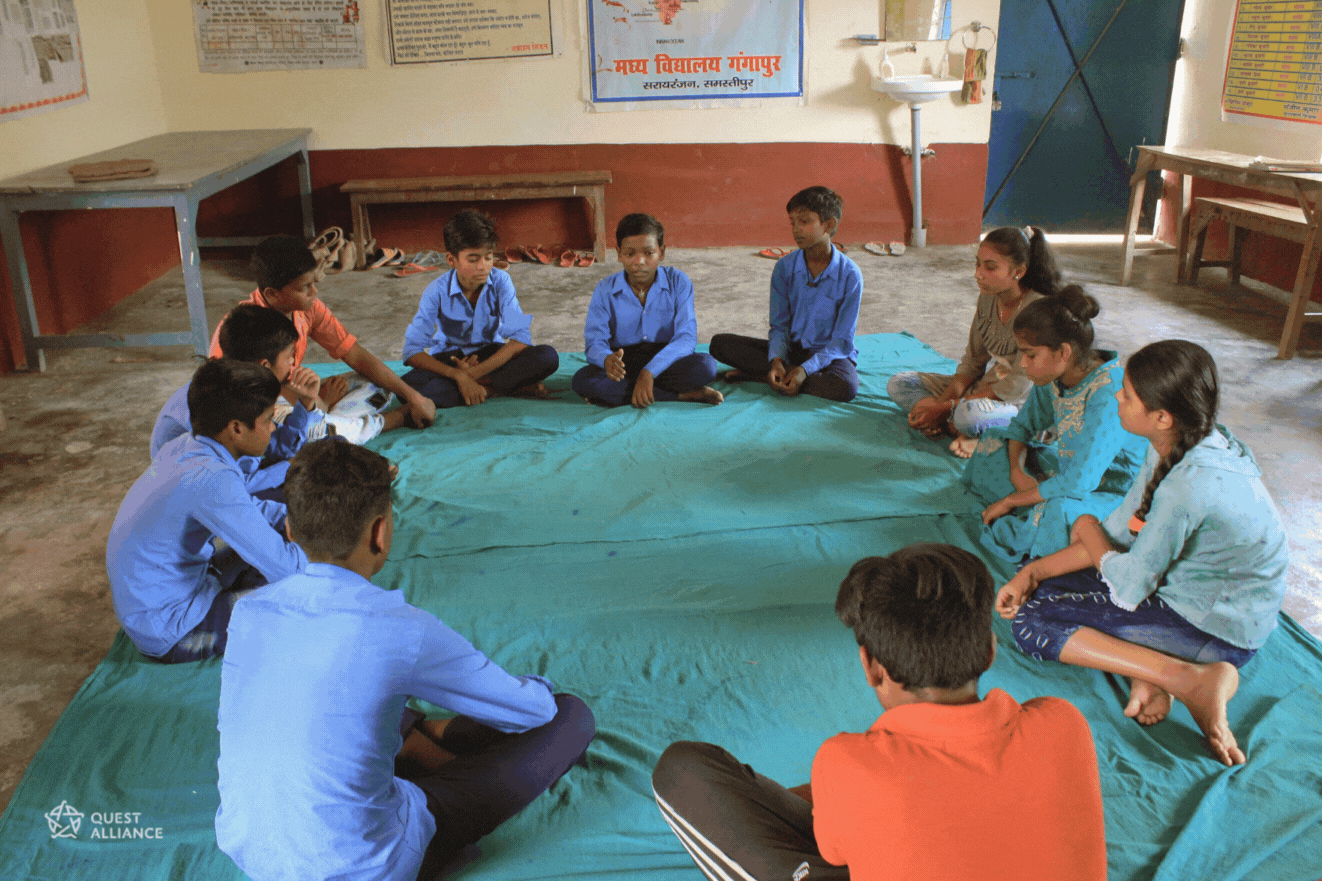Story
Akhilesh Thakur And His School In Gangapur
This story begins six years ago, when a starry eyed, younger Akhilesh Thakur was made principal at a small govt. middle school in Sarairanjan, Bihar – only to come face to face with the everyday realities of rural Bihar.
Details
Located around 70 kms from the state capital, Patna, Gangapur's economy is driven by agriculture. Until five years ago the community grew tobacco, much like the rest of the Bihar. But now swathes of land grow paddy, wheat and vegetables.
When Akhilesh joined Gangapur's government middle school, the school had a high student dropout rate. Its poor performance stemmed from the lack of adequate resources, less number of teachers, teacher apathy, poor infrastructure and a disconnect with the community. With the school's dwindling role in the community the possibility of it shutting down didn't seem unreasonable. As the new headmaster, Akhilesh Thakur was determined to not let that happen. He wanted to resolve issues on priority, but understood the work pressures that his teachers were under and the circumstances of the community they were dealing with.
In 2017, Akhilesh joined Anandshala’s support training. Our Anandshala program works towards making schools inclusive, joyful, learning spaces equipped with 21st century skills, and builds capacities of teachers, headteachers and school coaches to create a responsive education system which ensures that every child stays, engages and learns in schools.
The program helped him build a vision for his school, draw a plan for the change he wanted to bring, and think of solutions that could help.
__________________________
“Through Anandshala, I realized if I want to see a change, it should begin with me and the other teachers of the school. We started identifying existing problems in the school and brainstormed solutions together.”
-- Akhilesh Thakur
__________________________
There were three main sets of problems: the physical infrastructure, the teacher capacity and student engagement, and the community’s engagement. There were no toilets and no water facilities. During monsoon, the entire school ground used to get flooded, forcing students and teachers to wade through water and get past the water-logged entrance. Morning assembly and other extracurricular activities weren’t possible during this season. With an appeal to the district magistrate and the local panchayat, a compound wall was finally constructed to reduce flooding, making the ground usable again.

Akhilesh, as part of Anandshala training, organized workshops with teachers to work out persisting problems. Be it pedagogy, resources or any other support, they found ways to improve their work at school.
Of the many things that Akhilesh tried to set up, the Bal Sansad (student parliament) and Meena Manch were the most promising initiatives. It urged students to talk about their challenges at school, ideate actions to solve issues, and be more proactive about their time at school. The student parliament gradually grew in popularity both inside and outside the school. As a result parents became more invested and other community members more interested in the school.

“With the community’s help and contributions, we were able to solve many issues. I never thought the community members would be supportive”, says Akhilesh. Parents encouraged their children to attend school regularly, and began getting involved in their child’s performance. They discussed exam results, attended parent-teacher meetings. The teachers believe that all this helped increase the school attendance by 20%.
Students started publishing newsletters talking about everything at their school. It began as a quarterly, but is now done monthly and shared with students, teachers and local govt. officials. Smart classes have been installed with support from Anandshala. They have a smart TV and battery powered by solar panels.
When we visited this middle school recently, Akhilesh had facilitated other activities to aid overall development of his students. They set up kitchen gardening, there was sports equipment, tailoring classes etc. All his students can access these facilities to explore their potential.

__________________________
“We grow our vegetables for mid-day meals and together take care of plants and the surroundings of our school. Our seniors who passed out, still are connected with us through alumni associations. They support us with all our initiatives.”
-- Rahul, an eighth-standard student
__________________________
This year the school won the Rashtriya Swachh Vidyalaya Puraskar for its beautiful, eco-friendly campus, and the education department awarded Akhilesh in appreciation for his initiatives in the school.

Akhilesh hopes to build a better learning environment, where students truly enjoy their academic years. He aims to do this by developing a network of teachers, students and community members that work together to address common issues. With joint efforts, he managed to mobilize resource support for the school, he hopes to do it in the future too.
This is one of many stories that show how vital it is for teachers, students and the community to take ownership of the school's objectives for any real transformation to happen. Through programs like Anandshala, we are excited to continue trying new things, and working with communities to find education solutions that work for them.